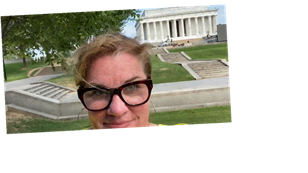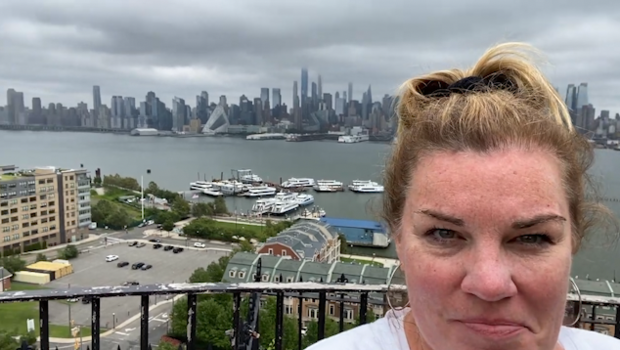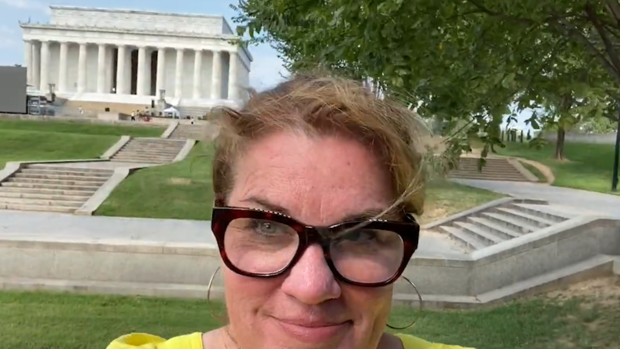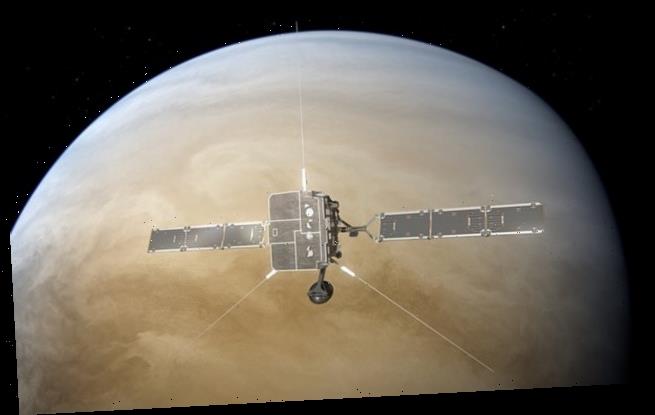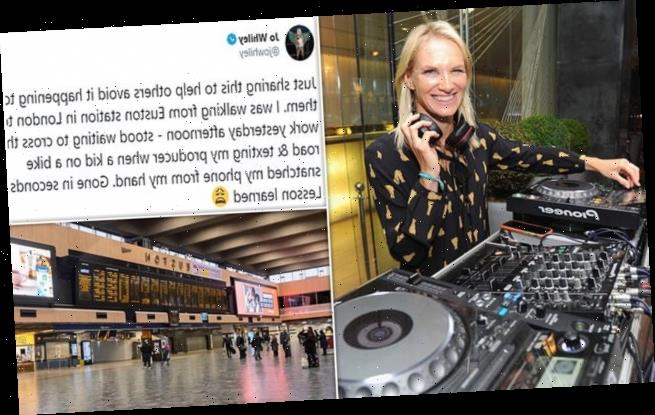In 2020, high school history teacher Cathy Cluck left school for spring break and didn’t come back. The coronavirus pandemic had shutdown schools, and Cluck and her colleagues had to adapt to virtual teaching. When the new school year started in August, Cluck wanted to find a way to make a connection with her students, despite not being able to meet them in person.
“When I realized we would be starting fully remote, I asked my principal if I could take off and log in to my classes from actual historical sites and he said, ‘Go for it, figure out the technology and make it work.’ And so, I did it,” Cluck, who teaches at Westlake High School in Austin, Texas, told CBS News.
“I teach all of U.S. history for AP [advanced placement]. And so, I wanted to start the course in colonial America, where most of what we would be actually studying would be kind of contemporaneous with where I was,” she said. “I started in Williamsburg. I spent a day in Jamestown, Virginia.”
Cluck filmed her journey for her YouTube channel and spoke about each historical site she visited. She even brought a lightweight, foldable desk, so she could conduct virtual classes from whichever landmark she was at for the day.
After Virginia, Cluck drove to Washington, D.C.
“They were setting up the following day for a big rally on the anniversary of the Martin Luther King ‘I Have a Dream’ speech. So that was amazing,” she said. “That was so special, to be able to teach history from that spot, you know, right there on the steps of the Lincoln Memorial.”
From there, Cluck headed farther north to Weehawken, New Jersey, where the Burr-Hamilton duel happened.
“I’m a huge Hamilton fan. So, that was the part that I was like, ‘I’m doing this. If I’m doing this for y’all, I’m doing this one for me,'” she said, laughing.
She then went to Gettysburg, Pennsylvania, stopping at Civil War battlefields along the way, then drove to Memphis, Tennessee.
“I really wanted to spend some time at the Lorraine Motel, which is where Martin Luther King was assassinated,” Cluck said. “It’s part of the Civil Rights Museum. I didn’t get to go in the Civil Rights Museum because of COVID, but it was important for me to be able to be in that spot.”
Cluck said she was worried that she wouldn’t be able to make the same connections with students as she would if they were in the classroom, but the road trip ended up bonding them. “There was this feeling of, all of us were sort of in it together. It was a way for them to get to know me in an environment where we’re not together in a classroom,” she said.
Her 15-day road trip ended around Labor Day, but it’s still being talked about today. The Presidential Inaugural Committee featured Cluck as a community hero during President Biden’s inauguration parade. “To me, it’s humbling. It’s such an honor,” Cluck said of the honor. “It’s so encouraging to know that recognition is being give to teachers, because this has been a really rough year.”
She said she hoped her historic travels inspired some of her high school students to hop in their cars and go on a road trip. “I hope that they would realize that, by traveling to these spots that it’s not just history, but America as a country is beautiful. And the people are beautiful,” she said. “And it’s really easy just to fly over to get from one destination to another, but part of the fun for me of road trips is stopping and sort of seeing the places along the way.”
Cluck is now back in the classroom, and her school is conducting hybrid learning, where only a portion of the students are in-person. She said with the COVID vaccine, there is hope on the horizon, but she knows some people are still struggling to adapt to changes during the pandemic. To those people, she said: “Take it day by day.”
“At the beginning of the year, this all seemed so overwhelming and we didn’t know how long remote [learning] was going to last. We didn’t know how long the pandemic was going to last,” Cluck said. “I mean, teachers are amazingly resilient. And all of us who are in education, we get it. We know how hard it is.
“And I think we’re going to look back at some point and be like, ‘We did that. I mean, we taught during a global pandemic,'” she said.
Source: Read Full Article
